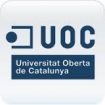Inteligencia Artificial y Derecho: Creación, Invención y Datos

Jornada - Derecho Digital (presencial)
abogacia Agenda Barcelona Derecho despacho Despachos de abogados Fidelización Profesión Universidad UOC virtual
Leer más
Por ahora, tan sólo empezamos a visualizar e imaginar las posibilidades que la inteligencia artificial puede aportar a nuestra sociedad. Hace algunas semanas, la Comisión de la UE publicó una Comunicación sobre Inteligencia Artificial [COM (2018) 237 final, de 25.04.2018] para garantizar un marco ético y legal apropiado para el desarrollo de proyectos de IA en Europa, con el objetivo de poner “el poder de la IA al servicio del progreso humano".
La IA se basa en algoritmos que piensan, toman decisiones, resuelven problemas y, lo más importante, aprenden. Los algoritmos de aprendizaje, máquinas capaces de pensar y aprender independiente (es la llamada IA “robusta”), aún se hallan en el reino de lo imaginable, a pesar de contar ya con ejemplos exitosos, como AlphaZero de Google que venció al DeepBlue de IBM aprendiendo las reglas del ajedrez en solo 4 horas! Actualmente, la mayoría de los proyectos de IA en desarrollo se basan en algoritmos destinados a resolver problemas de la vida real y a producir información que puede ser crucial para la ciencia y la sociedad. Estos proyectos de IA (llamada “débil,” pero no de menor importancia) se basan en el procesamiento de capas y capas de información que son objeto de tratamiento, lectura, y nuevo tratamiento y lectura en un flujo constante de reutilización.
La inteligencia artificial, tanto la “robusta" como la "débil," plantea problemas legales múltiples e interesantes. El seminario tiene como objetivo examinar algunos de estos desafíos. Específicamente, examinaremos la protección de la AI y algoritmos informáticos bajo las leyes de derecho de autor y patentes, distinguiendo entre resultados generados con asistencia de la inteligencia artificial o de forma independiente por ella. También examinaremos la necesidad de acceso a datos y minería de textos para el desarrollo de proyectos de inteligencia artificial, así como la asignación de responsabilidad por las infracciones y daños que puedan derivarse de la inteligencia artificial.
Por el momento, los ponentes confirmados son:
Prof. Jane C. Ginsburg, Morton L. Janklow Professor of Literary & Artistic Property Law, Columbia University Law SchoolProf. Andrés Guadamuz, Senior Lecturer on Intellectual Property, University of SussexProf. Aurelio López-Tarruella, Prof. Titular Derecho Internacional Privado, Universitat d’AlacantProf. Alessandro Mantelero, Associate professor of private law, Politecnico di TorinoProf. Anna Ramalho, Assistant Prof. of Intellectual Property, Maastricht University
Asistencia gratuita previa inscripción: lmarinmu@uoc.edu.
Se servirá café y comida ligera.
El seminario se realizará en inglés y español (sin traducción simultánea).
Artificial Intelligence and Law:
Creation, Invention and Data
27 June 2018, 9:30 h – 17 h
UOC - sala d’actes, Av. Tibidabo 39-43 - Barcelona
We are now only starting to visualize and imagine the possibilities that algorithms – and artificial intelligence- may bring to society and for the development of new markets. A few weeks ago, the EU Commission published a Communication on Artificial Intelligence [COM(2018) 237 final, 25.04.2018] aiming at ensuring an appropriate ethical and legal framework for the development of AI projects in Europe, in order to place “the power of AI at the service of human progress.”
AI is based on algorithms that think, make decisions, solve problems and, most importantly, learn. Learning algorithms, machines capable of independent thought and learning such as neural networks, may still be in the realm of an imaginable future –although we already have multiple successful examples, i.e., Google’s AlphaZero which beat IBM’s DeepBlue only after learning chess rules in 4 hours! Instead, most AI projects currently available are based on algorithms meant to solve real-life problems and to produce information that may be crucial for the advancement of science, culture, society. These AI projects are based on layers of inputs and outputs which are treated and machine-read, and retreated and re-read by other machines, in a constant flow of input/output.
Artificial Intelligence, either “strong” or “weak,” poses multiple and interesting legal problems. The Seminar aims at examining some of these challenges. Specifically, we will examine the protection of AI computer programs and algorithms under copyright and patents laws, distinguishing between computer-assisted and computer-generated results. We will also examine the need to secure access to data for the development of AI projects and the assignment of liability for the infringements and damages that may result from Artificial intelligence.
Confirmed speakers include:
Prof. Jane C. Ginsburg, Morton L. Janklow Professor of Literary & Artistic Property Law, Columbia University Law SchoolProf. Andrés Guadamuz, Senior Lecturer on Intellectual Property, University of SussexProf. Aurelio López-Tarruella, Profesor Titular Derecho Internacional Privado, Universitat d’AlacantProf. Alessandro Mantelero, Associate professor of private law, Politecnico di TorinoProf. Anna Ramalho, Assistant Professor of Intellectual Property, Maastricht University
Free admission – Registration required: lmarinmu@uoc.edu
Coffee and Lunch will be served.
The seminar will be conducted in English and Spanish (no simultaneous translation)
______
Organizado y patrocinado por
INTERDRET- Dret d'Internet (DDI) - 2017 SGR 1711 - Grup consolidat AGAUR.Inteligencia Artificial y Derecho: Creación, Invención y Datos
Organizadores
Estudios de Derecho y Ciencia Política de la UOC
Añadir a calendario
